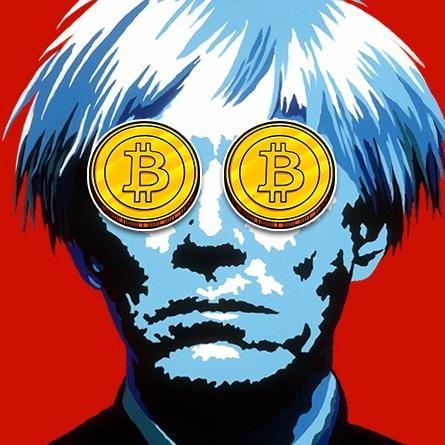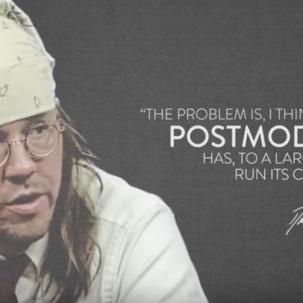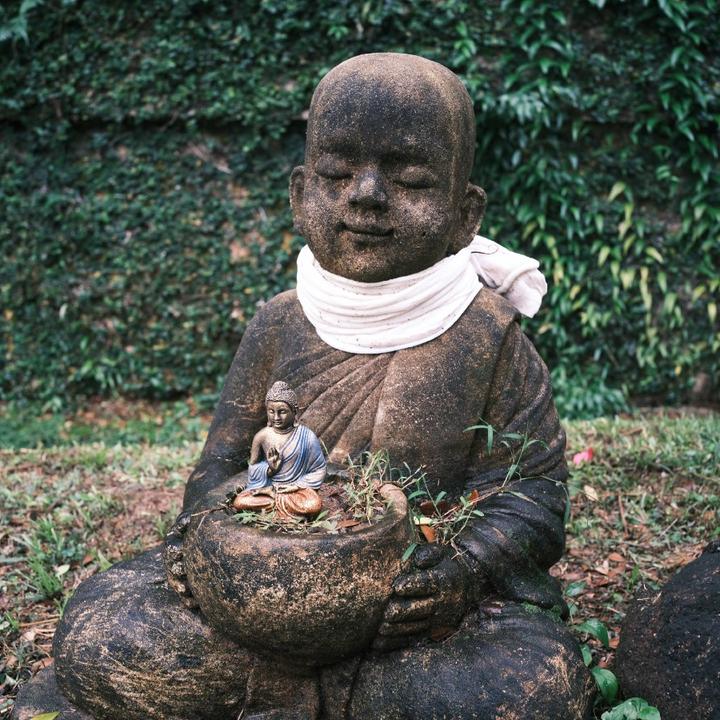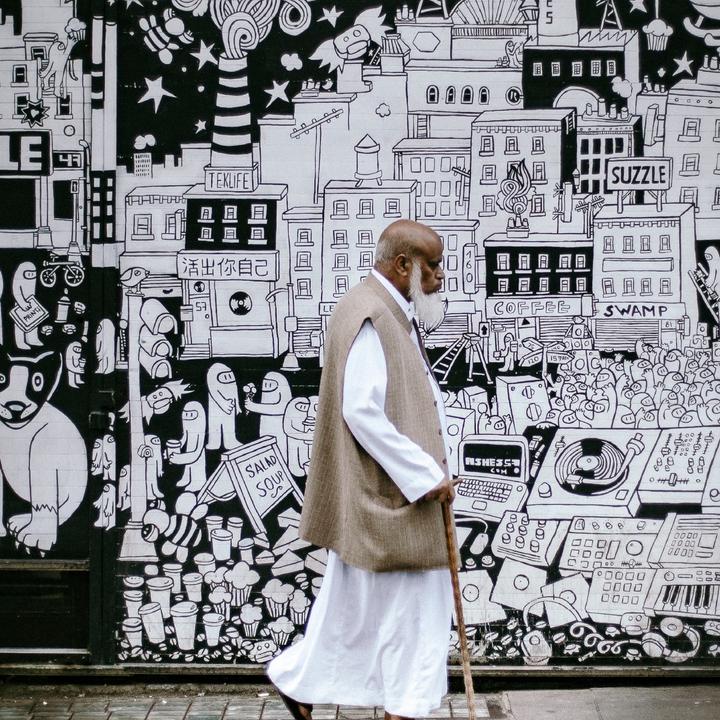
By: The Posts Author | Posted on: 17 Apr 22
“The difference between the fake Rothko and the cryptopunk is that the latter is honest about its dishonesty and absurdity. It just builds on the craze and momentum of cryptocurrencies and found a niche in this market: If people are already investing in “just a piece of blockchain” — why not mint unique pieces of “just a piece of blockchain”? It just happened to find a way to “pass” as a currency, and thus as a way to “pass” as an art investment. It’s actually a lot like what Warhol himself did with the art world. He was entirely honest
“The difference between the fake Rothko and the cryptopunk is that the latter is honest about its dishonesty and absurdity. It just builds on the craze and momentum of cryptocurrencies and found a niche in this market: If people are already investing in “just a piece of blockchain” — why not mint unique pieces of “just a piece of blockchain”?

By: The Posts Author | Posted on: 10 Apr 22
So once you’ve learned to question the world and to pick it apart you begin, with sincere irony, to reconstruct it playfully. You begin learning the art of mastering the many placebo effects around us, for the benefit of our own happiness and sanity, and for the benefit of others. Another quote would be in order, one by the American novelist, David Foster Wallace: “Real rebels, as far as I can see, risk disapproval. The old postmodern insurgents risked the gasp and squeal: shock, disgust, outrage, censorship, accusations of socialism, anarchism, nihilism. Today’s risks are different. The new rebels might
So once you’ve learned to question the world and to pick it apart you begin, with sincere irony, to reconstruct it playfully. You begin learning the art of mastering the many placebo effects around us, for the benefit of our own happiness and sanity, and for the benefit of others. Another quote would be in order, one by the American

By: The Posts Author | Posted on: 10 Apr 22
So once you’ve learned to question the world and to pick it apart you begin, with sincere irony, to reconstruct it playfully. You begin learning the art of mastering the many placebo effects around us, for the benefit of our own happiness and sanity, and for the benefit of others. Another quote would be in order, one by the American novelist, David Foster Wallace: “Real rebels, as far as I can see, risk disapproval. The old postmodern insurgents risked the gasp and squeal: shock, disgust, outrage, censorship, accusations of socialism, anarchism, nihilism. Today’s risks are different. The new rebels might
So once you’ve learned to question the world and to pick it apart you begin, with sincere irony, to reconstruct it playfully. You begin learning the art of mastering the many placebo effects around us, for the benefit of our own happiness and sanity, and for the benefit of others. Another quote would be in order, one by the American

By: The Posts Author | Posted on: 6 Apr 22
“By now — if you have read the previous articles that outline the eight pathways to a new planetary paradigm of education — a vision of the future of global education has begun to crystallize. Briefly put, I have roughly suggested an educational system that: 1. Emphasizes the cultivation of a multi-dimensional ecological relatedness. 2. Works to counter and adapt to the disruptions of technological innovations. 3. Leverages tech for purposes of tailoring education to the individual and supporting learning through modeling. 4. Emphasizes inner work and creates safe spaces for this to happen, while cultivating trust and training teachers
“By now — if you have read the previous articles that outline the eight pathways to a new planetary paradigm of education — a vision of the future of global education has begun to crystallize. Briefly put, I have roughly suggested an educational system that: 1. Emphasizes the cultivation of a multi-dimensional ecological relatedness. 2. Works to counter and adapt

By: The Posts Author | Posted on: 5 Apr 22
“A fundamental issue of being a refugee is that one’s citizenship is often not fully recognized; one ‘falls between the cracks’ and is thus deprived of the rights and services bestowed upon citizens of different countries. Without clearly identifying people as citizens, state structures are often inept, and sometimes oppressive, towards the sans papiers. It may thus be beneficial to create an internationally funded schooling system that enrolls people without such requirements, giving each an identity number, and tracking their progress longitudinally: which courses have they taken, what are their interests and special needs, and so forth. Such a system
“A fundamental issue of being a refugee is that one’s citizenship is often not fully recognized; one ‘falls between the cracks’ and is thus deprived of the rights and services bestowed upon citizens of different countries. Without clearly identifying people as citizens, state structures are often inept, and sometimes oppressive, towards the sans papiers. It may thus be beneficial to

By: The Posts Author | Posted on: 5 Apr 22
“A fundamental issue of being a refugee is that one’s citizenship is often not fully recognized; one ‘falls between the cracks’ and is thus deprived of the rights and services bestowed upon citizens of different countries. Without clearly identifying people as citizens, state structures are often inept, and sometimes oppressive, towards the sans papiers. It may thus be beneficial to create an internationally funded schooling system that enrolls people without such requirements, giving each an identity number, and tracking their progress longitudinally: which courses have they taken, what are their interests and special needs, and so forth. Such a system
“A fundamental issue of being a refugee is that one’s citizenship is often not fully recognized; one ‘falls between the cracks’ and is thus deprived of the rights and services bestowed upon citizens of different countries. Without clearly identifying people as citizens, state structures are often inept, and sometimes oppressive, towards the sans papiers. It may thus be beneficial to

By: The Posts Author | Posted on: 1 Apr 22
“Learning capacity” could become a school subject throughout the years, actively and deliberately drilling and repeating tasks that pertain to learning how to learn. It is, naturally, hard to imagine a more boring subject: repeating speed-reading techniques, practicing memory, going through notes, structuring work plans. The very word “drilling” makes chills go up spines – and it sounds as though all has been forgotten about making education embrace more of the intuitive and playful. But drilling the capacity to learn may very well be a sound investment that ultimately pays off even in terms of fun and playfulness: if children
“Learning capacity” could become a school subject throughout the years, actively and deliberately drilling and repeating tasks that pertain to learning how to learn. It is, naturally, hard to imagine a more boring subject: repeating speed-reading techniques, practicing memory, going through notes, structuring work plans. The very word “drilling” makes chills go up spines – and it sounds as though
By: The Posts Author | Posted on: 1 Apr 22
AVOID A NUCLEAR WAR — BY HELPING RUSSIA TO SAVE FACE! In the end, it is true that: – Russia has a ten times stronger military than Ukraine (at least on paper). – The Russian government (and the apparatus it relies upon and shares interests with) will be very desperate to not back down. – Other countries are unlikely to directly intervene. – Putin is threatening us with the world’s largest nuclear arsenal. Thus, a complete military victory by Ukraine is, after all, unlikely. Even with crowdsourced support around the world, even with a morale boost of the Ukrainians unparalleled
AVOID A NUCLEAR WAR — BY HELPING RUSSIA TO SAVE FACE! In the end, it is true that: – Russia has a ten times stronger military than Ukraine (at least on paper). – The Russian government (and the apparatus it relies upon and shares interests with) will be very desperate to not back down. – Other countries are unlikely to
By: The Posts Author | Posted on: 1 Apr 22
RUSSIA IS TO BLAME — BUT UNDERSTANDING IT IS CRUCIAL Western media, and international media at large, do a fairly poor job at bringing nuance and understanding to the Russian side of this cruel equation. For instance, we are continuously informed about Ukrainian civilian losses, as well as Russian losses of military personnel, but the media is vague, silent, or unrealistic about Ukrainian military losses. We should have no illusions about the impartiality of reporting. It stands to reason — and viscerally feel — that Russia is an unlawful aggressor in this situation. But to seek to understand Russia (and,
RUSSIA IS TO BLAME — BUT UNDERSTANDING IT IS CRUCIAL Western media, and international media at large, do a fairly poor job at bringing nuance and understanding to the Russian side of this cruel equation. For instance, we are continuously informed about Ukrainian civilian losses, as well as Russian losses of military personnel, but the media is vague, silent, or

By: The Posts Author | Posted on: 1 Apr 22
“Across the world, Multiculturalism has been failing over the recent decades: conflicts, racism, discrimination, antagonism, distrust, ghetto despair, the rise of rightwing populism, riots, crime, and even ISIS as an emergent transnational vortex of discontent and violent regression. These realities are grasped differently across the political spectrum, damning or defending Multiculturalism. But none of the established positions seem to embrace a proper update of the Multiculturalist stance: Transculturalism.” —Hanzi Freinacht https://medium.com/@hanzifreinacht/the-failure-of-multiculturalism-and-its-resolution-transculturalism-ea2332b73d96The Failure of Multiculturalism and Its Resolution: Transculturalismmedium.comAcross the world, Multiculturalism has been failing over the recent decades. A new approach is needed: Transculturalism.
“Across the world, Multiculturalism has been failing over the recent decades: conflicts, racism, discrimination, antagonism, distrust, ghetto despair, the rise of rightwing populism, riots, crime, and even ISIS as an emergent transnational vortex of discontent and violent regression. These realities are grasped differently across the political spectrum, damning or defending Multiculturalism. But none of the established positions seem to embrace







